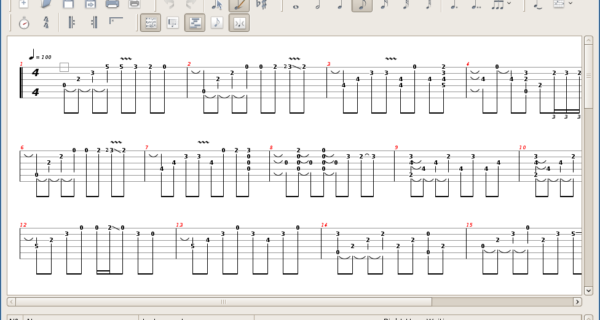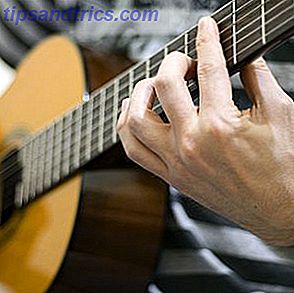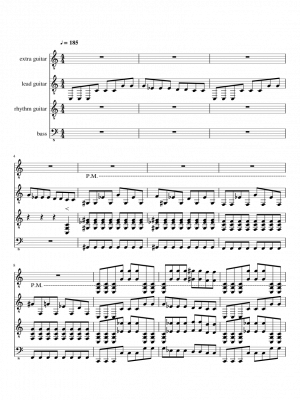
This often occurs in strumming patterns or raked parts of lead lines.īending: Whenever you see an arrow pointing upwards, you will be expected to bend a note. In addition, you should play the note to completely mute the pitch. Every time you see a muted note, you are expected to soften the note using your right or left hand. Muted Notes: Also known as the dead notes, muted notes are symbolized by an "X" on a particular string. For the little dashes, those are the number of times you should continue palm muting the notes. Palm Muting: If you can see a P.M marker, that's the palm muting. Having understood the basics of a Tab layout, it is time to look into the common elements you are likely to see when trying to play your favorite song. They will signify a harmony of some kind. The chords are the stacked numbers on a piece of tablature. The notes are the single numbers from your right to left on a piece of Tab that will represent a melody line or perhaps a solo you might play. So what exactly are they, and do they do? I have mentioned notes and chords before. In case they are all stacked on top of the other, then that is the only time you can simultaneously play multiple notes. This brings us to our first Tab tip: Always read Tab from your left to your right. In other words, the uppermost line will be the thinnest, and the bottom-most will be the thickest.


The topmost line is the high E guitar string, and the bottom line will be the low E string of the guitar. You are also likely to see six horizontal lines of the Tab that will represent the six guitar strings. In most cases, you will notice some standard notation on the top and bottom of the Tab. That is to say the thinnest will be the first and the thickest the sixth. The lines are arranged in numerical order from the thinnest to the thickest.
#Tux guitar words how to
To fully understand how to read Tabs, you will first need to be familiar with the 3 basic numbering systems. What's more, we are going to go the extra mile and go over the common elements you see when you pull up a tab.

The process can get quite overwhelming, but thanks to this class, everything you need to know is well elaborated. The author is still in possession of the original correspondence with the Happy Computer editorial staff, including the letter of rejection.As a new guitar player, you will need to learn how to effectively read the guitar Tab if you want to play chords, melodies, and songs. The program was rejected mainly due to poor (handwritten) documentation, and a tedious user interface. The user interface was in German only.Īn attempt was made to publish the program as a type-in listing in the German Happy Computer magazine. BASIC programs could be generated for direct playback without the program as well, facilitating easy integration of the created musical content into other programs such as games. It offered a multi-page graphical WYSIWYG, 3channel polyphonic playback and volume and tone envelope functionality, as well as save and load.

"Tab Composer CPC" was implemented in Locomotive BASIC 1.0. The first tablature program was written for the Amstrad CPC 464 in 1986. ( April 2022) ( Learn how and when to remove this template message) Unsourced material may be challenged and removed. Please help improve this section by adding citations to reliable sources.


 0 kommentar(er)
0 kommentar(er)
